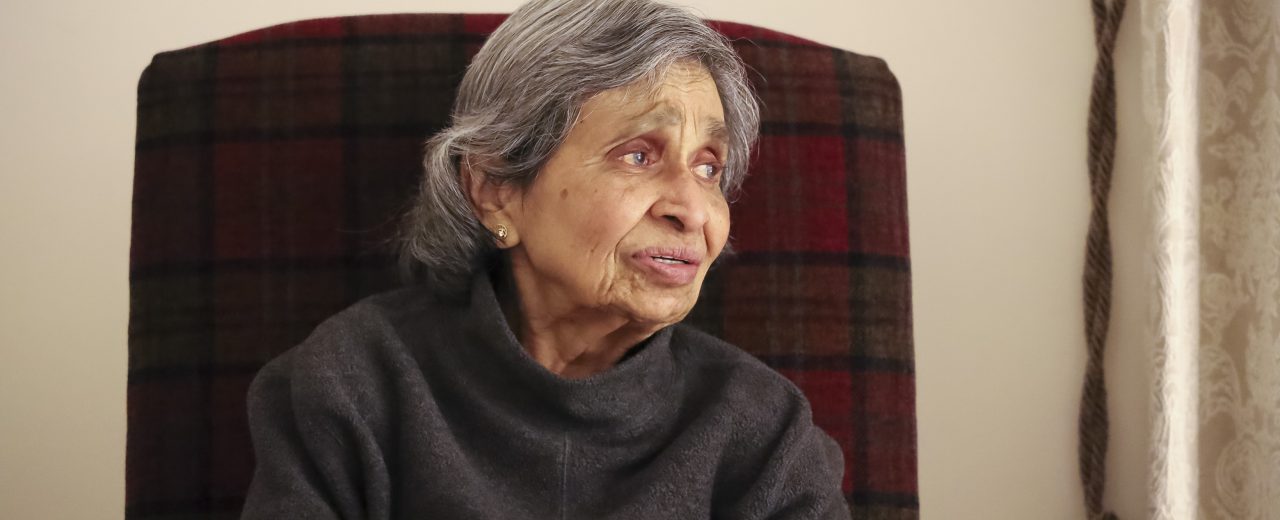3 vital recommendations from the Aged Care Royal Commission
31 Mar 2021
Justice Connect welcomed the Royal Commission into Aged Care Quality and Safety, and thanks the Commissioners for their work in investigating the failing system of aged care in Australia
Our Seniors Law program works in partnership with health providers in hospitals and community health settings, embedding our lawyers to work with health staff to understand elder abuse, and to provide legal information, advice and advocacy for health staff and their patients about the legal issues and options for people who experience, or are at risk of experiencing elder abuse.
We’ve outlined three key recommendations from the Royal Commission that we believe will be vital in preventing elder abuse and will provide safe, appropriate care for older people in Australia.
The need for a rights-based approach
When older people enter an aged care setting, they don’t leave their rights at the door. Older people have the same rights as all Australians to live a life free from all abuse, and the same rights to be included in all aspects of Australian life. We strongly advocate for a human rights based approach, and agree that this shift is vital to ensure that older people receive the care to which they are entitled.
Only a rights based approach will ensure that the support is at a high standard, meets individual needs, and allows transparency and choice in their aged care provider.
Through our legal services assisting older people in preventing and responding to with abuse, we see the importance of resourcing older people to exercise their rights. Our work includes supporting older people to make decisions about their financial future, and who will, and who will not, make decisions for them if they are no longer able.
We believe a consumer lead approach can transform service systems quickly, and see the delivery of services grow to be what consumers want and need.
Our work shows us that people from diverse communities, such as LGBTQI+ and CALD people, require supports that are tailored to their needs to be appropriate and effective. Having someone who ‘speaks your language’ can prevent elder abuse.
Support to navigate the service system
We support Commissioner Briggs recommendation for the establishment of ‘Care Finders’ that will deliver a face to face service to assist with the navigation of aged care systems, referrals, and linking to other service systems such as health, mental health or housing.
These ‘Care Finders’ will be an important opportunity to embed a preventative approach to elder abuse. Through our legal work, we regularly see how common elder abuse is within aged care and in the community. Our legal education, support, training and resources to frontline health workers about elder abuse builds their confidence in identifying and responding to elder abuse, It also enables older people to get the support they need. The training of ‘Care Finders’ to identify and respond to community and institutional elder abuse will be essential to meaningful progress.
Enhancing advocacy support to prevent elder abuse
The Royal Commission reports that the abuse of older people is far from uncommon, with Commission Briggs concluding that in Residential aged care assaults may be as high as 13-18%. 47% of residents have concerns about staff including understaffing, unanswered call bells, high staff turnover and staff not knowing residents’ needs. She concluded that substandard care is normalised in aged care settings, and that people have low expectations of quality care.
The shocking abuse of older Australians within our aged care settings is exacerbated by the social exclusion of many older people, and the challenges faced by those who require support from advocates to address their issues. We welcome the Commission’s recommendation to enhance advocacy support and undertake a review of unmet need.
Justice Connect’s Seniors Law program applies a Health Justice Partnership model where lawyers are embedded in health services, allowing our lawyers to educate health workers to identify and respond to elder abuse, and allow lawyers to provide advocacy for those who cannot be reached in other ways.
In our submission to the Royal Commission, we highlighted the need for advocacy for older people in Australia, and the need for specialised elder abuse legal advice and support services. It is critical that the response to the Royal Commission includes a range of advocacy models, including legal advocacy. We see this as a critical opportunity to ensure that older Australians, especially those who are ‘hard to reach’, can access effective pathways to legal help to address elder abuse.
We welcome the Royal Commission’s Final Report’s focus on preventing elder abuse in residential aged care and in the community.


